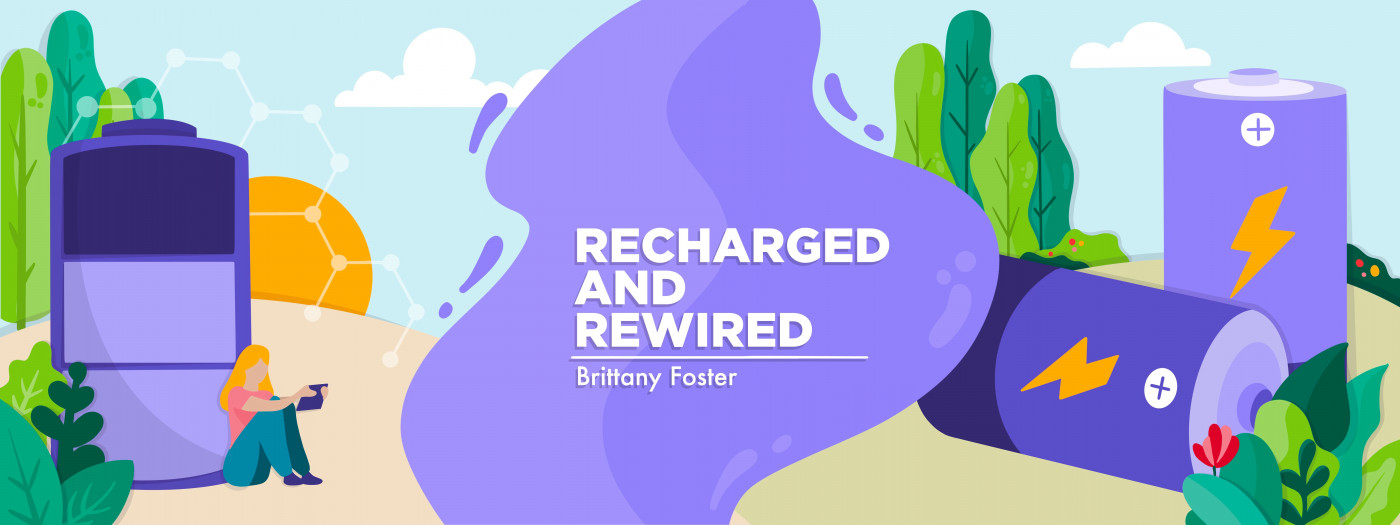PH Is Messing with My Head: Brain Fog and Migraines

Chronic low oxygen levels, sleep-related breathing disorders, lack of proper circulation, and gas exchange impairment are all factors that have contributed to the neurological consequences that have been more prominent in my life recently. Pulmonary hypertension affects more than just the heart and lungs. After recent neurocognitive testing, doctors confirmed that low oxygen and a buildup of CO2 have affected my brain and neurocognitive function. I frequently suffer from debilitating migraines, feel as though I am in a fog during the day, and notice that I have been having trouble learning and processing new information.
Before my pulmonary hypertension diagnosis, I was no stranger to migraines. Migraines are more than a headache. It’s the type of pain and discomfort that makes me sensitive to noise, touch, and sight. The type of migraine I get from lack of oxygen is different from other migraines I’ve previously experienced. The difference is that I usually don’t see an aura or have spotty vision beforehand.
My biggest warning sign that I’m having a hypoxia migraine is sensitivity to light and a sharp pain that feels like a shock at the back of my head. I try to pay attention to the warning signs before it gets this bad. To help limit this type of headache, I monitor my oxygen levels and make sure to stay well hydrated through the day. Staying proactive is an important part of managing symptoms. Luckily, these types of migraines are helped with an increase in oxygen flow, pain-management medication, and rest.
Not only do I feel pain from migraines as a result of low oxygen, but neurocognitive abilities are also affected. One of my most noticeable cognitive impairments is frequent episodes of brain fog. For me, this happens when I am speaking and listening to others. It’s as if I look completely alert but I am not taking in any of the information and am unable to repeat the information back to anyone. This can get difficult if others think I am not listening to them. I frequently will stop during the middle of a conversation and say, “What was I just saying?” I lose my train of thought in a matter of seconds, even if it’s a topic I’m very interested in.
Share your experience with migraines and brain fog in our PH forums!
Not only has brain fog limited my ability to have conversations, but it also has made me forget to take medications, or I take an extra dose of medicine by accident. These frights have made things clear: I need to treat my brain fog. I have been in the habit of writing everything down, using lists, having a pill organizer, and have made people more aware of my condition so they don’t think I’m “not listening.”
My memory, as well as my ability to learn and process information, have been noticeably different with my increase in oxygen demand. It frustrates me to think back to a time when I could easily memorize pages upon pages of information. I achieved almost a 4.0 grade point average upon graduating college. Now, unless I finish a book within a few days of starting it, I completely forget what I have read. It is hard for me to remember new information that I am learning and keep it in my short-term memory.
My recall and retrieval of new information is a struggle. I’m repeating myself often and looking back on things I have learned to try to trigger my memory. I’m upset when things around me feel as if they are new all over again. My response time to others and my surroundings is noticeably delayed. On days when others really can see this effect on me, I stay away from driving and use caution when doing daily activities.
It is difficult to feel the impact of pulmonary hypertension on various systems of the body. In my opinion, the most upsetting impact is the toll that it takes on neurocognitive functions and having to manage debilitating migraines. Not only is it frustrating when noticing these symptoms in yourself, but it also can be equally upsetting for others around you to notice changes.
Have you noticed any neurological effects from pulmonary hypertension? Do you experience brain fog, lack of memory and focus, or severe migraines? How do you manage this in your life and make others aware of your condition? Share your experience on the PH forum discussing this topic.
***
Note: Pulmonary Hypertension News is strictly a news and information website about the disease. It does not provide medical advice, diagnosis, or treatment. This content is not intended to be a substitute for professional medical advice, diagnosis, or treatment. Always seek the advice of your physician or other qualified health provider with any questions you may have regarding a medical condition. Never disregard professional medical advice or delay in seeking it because of something you have read on this website. The opinions expressed in this column are not those of Pulmonary Hypertension News or its parent company, Bionews Services, and are intended to spark discussion about issues pertaining to pulmonary hypertension.








Janet Barry
Thanks for the article. I never realized that my "brain fog" and lack of concentration could be a byproduct of my PH. I used to piece and quilt quilts. After having a knee replacement 10 years ago and being dx with PH 4 years ago my quilting has become non existent and I truly miss the productivity. At least now I have a reason and perhaps I will be able engage in this activity again.
Jan
My brain fog is getting worse. Have dizzie moments more than I care to admit. I believe I have put a new meaning to being a dizzy blonde. I find that when I try to walk a straight line I end up on the oposite side of the room generally sway to the left not where I had intended to walk to. My short term memory is also getting bad. If I don't take a list with me when I go shopping I won't remember what I went to the store for. Now for oxygen this morning as I was changing from the cpap machine with oxygen to just oxygen I took my oxygen level which within 30 minutes off oxygen was at 80 with a heart rate of 95. Not good. After getting back on the oxygen its up to 97% and heart rate is at 61. I'm just happy I am alive.
Hazel Bullock
I am 82 years young, I have been diagnose with PH, I am lost, no one seems to know much about it. I am in the moderate class, My number was 54. Where can I learn what my life will be like here on out?
Valerie
So many thanks, Brittany. I read your text and I understood I'm not the only one. My hypertension also aggravated my migraine (aura, blindness, blurred spots - everything is just disgusting and is becoming increasingly; I have a theory that it's becoming more frequent because of sildenafil, which I can't not take). Two mutually dependent diseases make you feel particularly helpless (especially when some people think I am feigning). Because of this, the main problem was depression, not hypertension and migraine. I'm glad I found this site. I hope posts like yours will make my life a little easier. Good luck, strength and patience to you and all of us!
Avrelle
Good morning!!! I am from Australia and though I have not been diagnosed with Pulmonary hypertension I have been diagnosed with non-alcoholic fatty liver disease. I am still trying to figure out how I got this, as I eat healthily. However, for a long time I did use margarine (when we were told that butter was bad for us!!!). I changed over about 10 yrs ago, back to butter, mostly because I was suffering from chronic migraines (possibly caused from a hormone change - moving into menopause) and chronic anaemia, for which it took me 8 years to diagnose the cause. The migraines caused chronic vomiting, which I understand can also change the chemicals in the liver and cause damage too. Anyway, I am now close to Menopause and am on natural hormone therapy, but am still having headaches & migraines. So, at this point, need to seriously change my diet (liver cleanse( because I am sick of the brain fog & headaches). I thought I would leave a comment for you all, as I have found that when I look after my liver better things do improve. I gave a long way to go to get my liver back on track but just drinking the juice of beetroot, celery, carrot, green apples & lemon, makes for an improvement in my migraines and when done religiously for long periods of time, I feel like I am getting back to good health. The only thing, however, is the finances to afford so much vegies and the time & energy to do so, every day. I have now made a commitment to myself, as I believe that if I don’t, I may live past the no return point, because I have had migraines again now for the last 3 weeks. So, now that my second daughter has moved out of home, and only my husband and our son are left home, I need to start caring for myself more. I hope you can all have a try of the morning tonic (veggie juice) and I look forward to hearing if you find any improvement. Regards, Avrelle.
Lee A Medina
I never connected the two together! Very interesting! I have had migraines since I was 10, they got worse after a Bus accident 4 years ago and as of late I get these weird migraines that no medicine will fix, yet when I put on my oxygen I seem to feel better. I just thought it was a weird thing, never connecting the two together. I know my dizziness is getting some what worse as are the migraines at almost daily despite the meds I am on. So, thank you for sharing this info! I will be sharing this with both my pulmonologist and my headache specialist.
Lee Ann Medina
Oh my gosh, I never considered the 2 related! I have been having migraines for ages, in the past few years they have changed, and my ability to remember things, and do things are much slower, especially when a migraine comes on. I never thought to check my oxygen level. I have presumptive PH and so I have not been diagnosed officially with PH, still waiting on someone to give me a RHC. However, this was good information. THANK YOU!
Mariel
How do I get my Doctor to pay attention to me. After giving me my diagnosis about 4 years ago he hasn't done a thing for my Pulmonary Hypertension. Maybe he thinks im too old or dum to be bothered wasting his time,